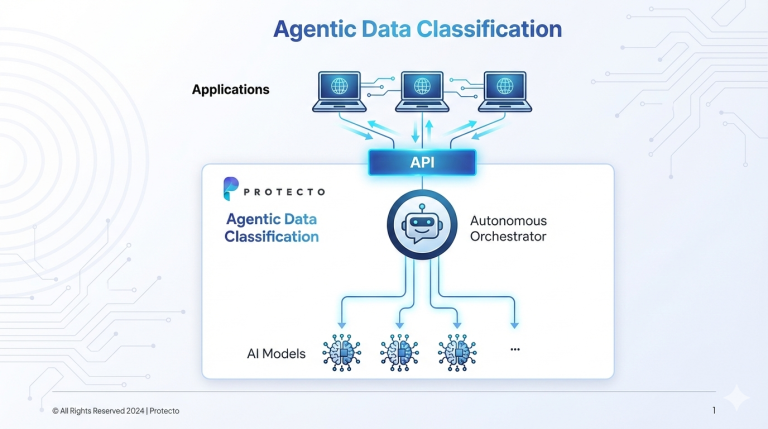Meta Unveils Code Llama 70B: A Leap Forward in AI Code Generation
In a groundbreaking move, Meta has released Code Llama 70B, the latest iteration in its series of open-source code generation models. Code Llama 70B maintains the tradition of an open license, fostering research and commercial innovation. This release builds upon its predecessors, including Llama 2, and is poised to redefine AI-driven code generation.
One standout feature in the suite is CodeLlama-70B-Instruct, a finely tuned version explicitly designed for instruction-based tasks. This model achieves an impressive 67.8 on HumanEval, solidifying its status as one of the highest-performing open models currently available. This addition enhances the versatility of Code Llama 70B, making it adept at handling a variety of coding scenarios.
Code Llama 70B offers three free versions tailored for research and commercial use:
- Foundational Code (CodeLlama – 70B): The core version for general-purpose code generation.
- Python Specialisation (CodeLlama – 70B – Python): A version fine-tuned for Python-related tasks.
- Fine-tuned for Natural Language Instructions (Code Llama – 70B – Instruct 70B): It is designed to excel in instruction-based coding tasks.
Mark Zuckerberg, Meta’s Chief, expressed his enthusiasm for the project, stating, “We’re open-sourcing a new and improved Code Llama, including a larger 70B parameter model. Writing and editing code has emerged as one of the most important uses of AI models today.” He emphasized the significance of coding skills for AI models to process information rigorously and logically, hinting at further advancements in upcoming models.
Meta initially introduced its code generation model, Code Llama, in August. This model generates code based on both code and natural language prompts. Like its predecessor, Llama 2, Code Llama is open source and commercially available, fostering a collaborative environment for developers and researchers.
Code Llama is built on top of the foundation of Llama 2, fine-tuned with specialized code-related datasets. The suite encompasses four versions: Code Llama, Code Llama Instruct, Code Llama Python, and Unnatural Code Llama. Each version varies in capacity, with parameters ranging from 7B to 34B, offering developers flexibility based on their specific requirements.
Meta’s commitment to open-source innovation remains evident as the AI landscape evolves through projects like Code Llama 70B. This latest release empowers developers with enhanced capabilities and underscores Meta’s dedication to advancing AI technologies. With Code Llama 70B, the doors are open for a new era of AI-driven code generation, promising exciting possibilities for research and commercial applications.
LangChain and Elastic Collaborate to Unveil Powerful Elastic AI Assistant for Enhanced Security Analytics
In a strategic partnership, LangChain, a trailblazing player in the software development landscape, has joined forces with Elastic, a leading search analytics company, to introduce the groundbreaking Elastic AI Assistant. This collaborative effort aims to revolutionize security analytics, providing a robust tool to streamline tasks for security analysts and enhance overall threat detection capabilities.
Elastic, renowned for its search analytics solutions with a vast clientele of over 20,000 organizations worldwide, has been at the forefront of enabling real-time, scalable data processing. Their cloud-based offerings span search, security, and observability, empowering businesses to leverage AI for actionable insights from extensive datasets, both structured and unstructured. The recent collaboration with LangChain and LangSmith has resulted in integrating an AI Assistant into Elastic’s security suite.
The Elastic AI Assistant for security is a premium product tailored to support security analyst workflows. Since its initial launch in June 2023, this enterprise-only feature has witnessed significant adoption, proving its efficacy in reducing Mean Time to Respond (MTTR) and enhancing the efficiency of Elastic Security.
Key features of the Elastic AI Assistant include:
- Alert Summarization: This feature provides detailed explanations for triggered alerts and recommended playbooks for remediation, ensuring an organized response during security events.
- Workflow Suggestions: Guides users through various tasks, such as adding alert exceptions or creating custom dashboards, enhancing the user experience.
- Query Generation and Conversion: Facilitates easy migration from other Security Information and Event Management (SIEM) systems to Elastic by converting queries from other products or natural language into Elastic queries with proper syntax.
- Agent Integration Advice: Offers guidance on the optimal way to collect data in Elastic, enhancing data collection efficiency.
Elastic’s Chief expressed his enthusiasm for the collaboration, emphasizing the growing importance of AI models in coding and information processing. The Elastic AI Assistant underscores Meta’s commitment to advancing AI technologies, providing developers and security analysts with a powerful tool for streamlined workflows.
LangChain and LangSmith’s Role in Product Development
The collaboration involved Elastic’s commitment to an agnostic approach to the Language Model (LLM), allowing end-users to bring their model. This flexibility supports OpenAI, Azure OpenAI, Bedrock, and other models, offering users control from the outset. LangChain’s native tooling for creating Retrieval Augmented Generation (RAG) applications seamlessly integrated with Elastic’s vision. LangChain’s abstraction of application logic from underlying components allowed for swappable models and prompts, reducing engineering overhead.
LangSmith, a critical component in the development process, facilitated the understanding of model interactions, response times, and token consumption. This visibility allowed the Elastic team to make informed decisions, ensuring a consistent experience across supported models.
James Spiteri, Director of Security Product Management at Elastic, acknowledged the positive impact of working with LangChain and LangSmith, citing their contributions to the pace and quality of development and shipping experiences.
Future Developments with Elastic AI Assistant
While the AI Assistant currently supports three model providers, Elastic has ambitious plans to expand its offerings to cater to a broader audience. Leveraging LangChain’s agent framework is the next significant step, enabling more work to be accomplished in the background and allowing users to approve actions. This move beyond knowledge assistance positions the Elastic AI Assistant to elevate security analytics to new heights, with confidence in LangChain and LangSmith’s support.
The collaboration between LangChain, LangSmith, and Elastic marks a noteworthy milestone in the evolution of AI-driven security analytics, promising enhanced capabilities and efficiency for security analysts and organizations.



